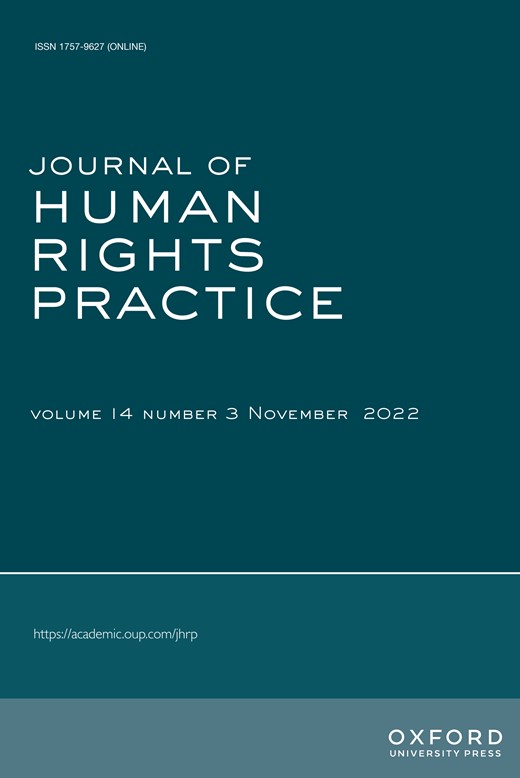-
Views
-
Cite
Cite
Abdul Kalam Azad, Divya Nadkarni, Joske G F Bunders-Aelen, Beyond Resistance, Beyond Assimilation: Reimagining Citizenship through Poetry, Journal of Human Rights Practice, Volume 14, Issue 3, November 2022, Pages 986–1004, https://doi.org/10.1093/jhuman/huac055
Close - Share Icon Share
Abstract
The members of the Miya community in Assam, India have been facing an exacerbated threat of statelessness. Among the emancipatory grassroots organizations that have emerged to defend the rights of the Miya community, is an aesthetic resistance movement, now recognized as the ‘Miya Poetry’ movement. The bulk of the movement’s work since its emergence in 2016 has been to call attention to the discriminations and human rights violations faced by the Miya people in citizenship contestation processes. Miya poetry has, on the one hand, received wide acceptance as a poetry of protest and resistance in artistic, academic, and liberal media circles, while on the other, its contributors have been frequently criminalized or questioned by the state for their political views. In this article, we argue that Miya poetry should be looked at beyond the frames of resistance and protest in order to understand its social work as a human-rights movement. These poems have the affective capacity to build resilience, to facilitate complex understandings of difference, and to reimagine equality, democratic values, and freedom from forced assimilation as integral to the idea of citizenship. We used innovative methods to form our data corpus, combining life history interviews with analyses of selected poems. We deployed thematic analysis to report our results. The findings will be useful not only for the poets and artists of different genres who seek to defend human rights, but more broadly for global human-rights practices that wish to actuate a deeper reflective engagement with art-based activisms.



